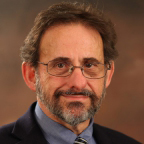
A high honor is bestowed on David J. Malik, Ph.D., a Chancellor’s Professor, Emeritus here at the Purdue School of Science. Malik, who was a professor with the Department of Chemistry and Chemical Biology is part of the 2020 class of American Chemical Society Fellows.
The ACS Fellows was created in 2008 and is awarded to members who have made exceptional contributions to the science or profession and also have provided volunteer service to the ACS community. With the ACS being the largest professional society in the world, Malik says this acknowledgment of his career at IUPUI is especially satisfying.
“It is an unexpected honor to be named a Fellow. At this point, the program is about ten years old, to be one of the early recipients means a lot to me,” said Malik. He went on to say, “I think since I have retired, it’s a flattering statement on how the ACS views my activities that serve the Society and science education.”
Malik has actively been involved with the ACS since 1969 serving in many capacities locally and nationally. He retired from IUPUI in 2018, but had been part of the school since 1980. Under his guidance, not only have chemistry students thrived, but the department has been a leader in changing the way students learn. Some examples given in his nomination letters that support this include: the move to online testing, Peer-led Team Learning, and as chair he was instrumental in establishing the Ph.D. program.
“Throughout my career, I have chosen activities that meant something to me and that I would enjoy doing. Many activities I picked would focus on improving science education or bring very successful scientists to our campus or region to encourage interactions with current scientists and others interested in science,” said Malik.
Malik was very passionate about serving as a member of the ACS Society Committee on Education for 8 years, with 3 of those years as Vice Chair. The mission of the committee is to advance chemistry education and connect the diverse communities. “It was a nice balance of changing expectations in education that interfaced with my professional Society,” said Malik.
He says working with his colleagues across the country (and world) has also been incredibly rewarding.
“I learned about different ways of thinking and these experiences really helped me refine my own career choices. I think sometimes our “careers" are active learning experiences where many people can help improve our own perspectives and deepening our own understanding of our work,” said Malik.
The School of Science is incredibly proud of Dr. Malik; we congratulate and thank him for helping better not only students but also the School of Science.